At the AI4VN 2025 event held on the afternoon of September 26, experts analyzed Vietnam's position on the global Artificial Intelligence map, and pointed out the challenges, opportunities and roadmap for Vietnam to make a breakthrough.
Vietnam is ranked in the group of 'emerging potential' in AI
According to Mr. Le Hong Viet - General Directorof FPT Smart Cloud, the global AI race is still heating up every day, with two main arenas being the development of basic AI models and academic research.
Citing figures from reports by IDC and PwC, Mr. Viet revealed that AI is expected to contribute 19.9 trillion USD to the world economy and contribute to a 15% increase in global GDP by 2035.
The picture clearly shows the dominance of two "giants." The US leads with 40 leading AI models and a total private investment of up to 471 billion USD (period 2013-2024). China is accelerating strongly with 15 high-quality models, leading in the number of patents (more than 817,800) and gradually narrowing the gap in model quality.
"In that picture, Vietnam is classified as one of ASEAN's 'emerging potentials,'" Mr. Viet said. However, the investment gap is a huge challenge. Vietnam's total investment in AI is far behind that of the US, China (56 times) and even Singapore in the region.
In addition to the investment gap, Vietnam also faces challenges such as a shortage of high-quality human resources, inadequate spending on R&D, and a legal corridor for AI that is still in the process of being completed.
Mr. Nguyen Hoang Hung - Technology Director of Viettel AI, said that the world's leading technology corporations such as Meta, Microsoft, and OpenAI have invested tens and hundreds of billions of USD to own millions of GPUs.
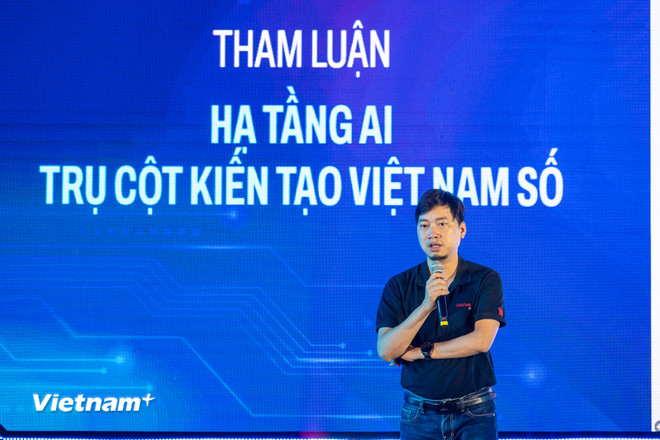
Training Meta’s Llama 3 model required 30.84 million GPU hours – an amount that, if done with a small domestic server cluster, could take up to… 55 years. This figure shows the huge gap between Vietnam and the world in terms of infrastructure.
Faced with that trend, Vietnam is not left out of the game. The government has issued ambitious strategies, aiming to put Vietnam in the Top 3 in Southeast Asia and Top 50 in the world in AI research by 2030. However, the size of the domestic data center market is still modest compared to other countries in the region. "This is both a challenge and a great opportunity," Mr. Hung pointed out.
However, according to experts, Vietnam still has some notable bright spots. A report by WIN (Worldwide Independent Network of Market Research) ranked Vietnam 6th out of 40 countries in terms of readiness for the AI era.
The domestic AI ecosystem is also heating up rapidly with investment capital reaching 80 million USD in 2024 (8 times increase), a technology workforce of about 500,000 people, and a high AI adoption rate (42% of the population, 65% of small and medium enterprises have used it).
According to experts, Vietnam’s strengths are competitive costs, a proactive government, and rapid economic growth. On the contrary, inherent weaknesses that need to be overcome include an unsynchronized AI infrastructure, a shortage of high-quality AI human resources, an incomplete legal framework, and modest spending on R&D.
Roadmap to "Building Sovereign AI" for Vietnam
Mr. Nguyen Hoang Hung emphasized that mastering AI infrastructure is not only a business story, but also a prerequisite for the success of national digital transformation.
"This is a solid foundation for Vietnam to be able to be technologically autonomous, innovate and create a sustainable digital future," affirmed Viettel AI's Technology Director.
Mr. Le Hong Viet believes that AI is no longer a story of the future but has already existed and is reshaping the digital race between businesses. "For every USD invested in generative AI, businesses can achieve a 3.7 times return on investment (ROI)," he shared.
In fact, in Vietnam, "AI Agents" are being strongly applied to change the way businesses operate. FPT Smart Cloud has deployed more than 1,500 AI Agents for customers, helping to automate 46% of the customer care center's workload, increase 20% of revenue through telesales channels, and process more than 400 million sets of documents each year with over 95% accuracy.
A typical example is the application of AI Agent in telesales and customer care activities, capable of making 20 million calls per month. In the field of human resources, AI assistants help 20,000 employees study regularly, increasing the quality of knowledge by 15% and saving 80% of training resources.
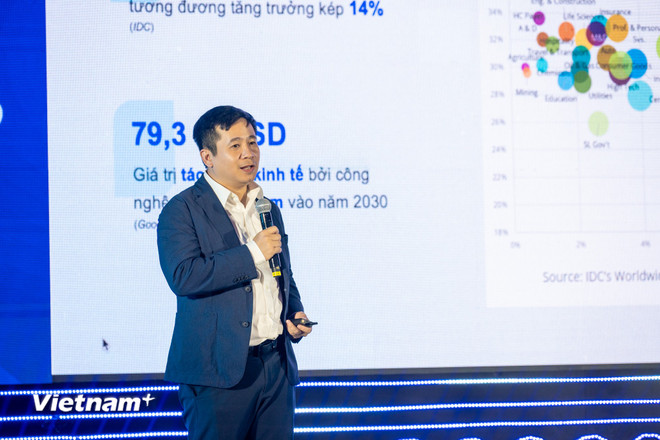
From the above analysis, Mr. Le Hong Viet proposed a strategic roadmap for the 2025-2030 period so that Vietnam can not only catch up but also lead the region. This strategy is called "Building Sovereign AI", focusing on four pillars: people - digital infrastructure - products - ecosystem. The roadmap is divided into three main stages: 2025 - foundation and preparation; 2026-2027 - deployment and expansion; 2028-2030 - leading the region.
Experts agree that infrastructure difficulties are the driving force for Vietnam to find its own way, such as taking advantage of competitive costs, a large young technology workforce, and proactive support from the State. If Vietnam persists with a methodical investment strategy, it can shorten the gap with the major powers and emerge as an emerging AI center in the region./.
Source: https://www.vietnamplus.vn/viet-nam-duoc-xep-vao-nhom-tiem-nang-moi-noi-khi-dau-tu-vao-ai-post1064306.vnp







![[Photo] Prime Minister Pham Minh Chinh attends the groundbreaking ceremony of two key projects in Hai Phong city](https://vphoto.vietnam.vn/thumb/1200x675/vietnam/resource/IMAGE/2025/9/27/6adba56d5d94403093a074ac6496ec9d)
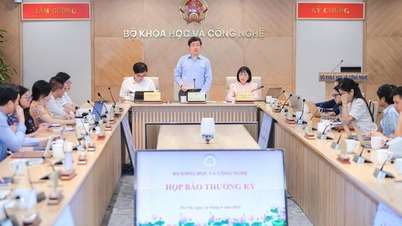

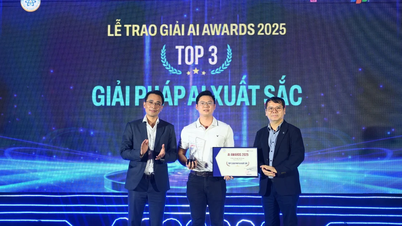


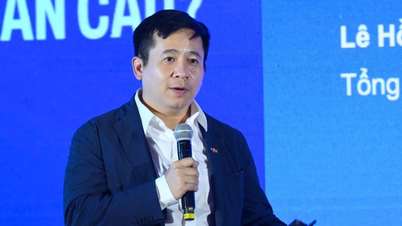


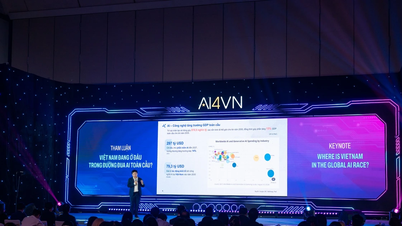

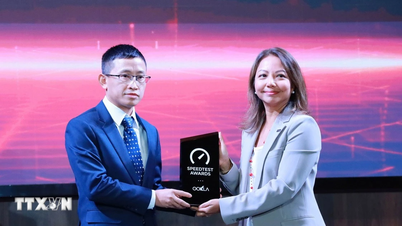








































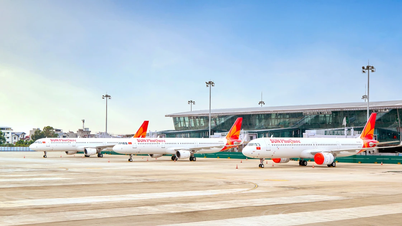






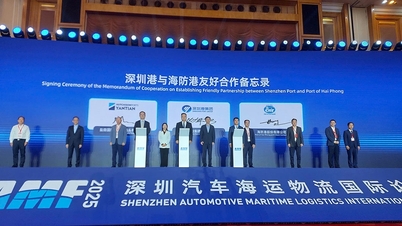







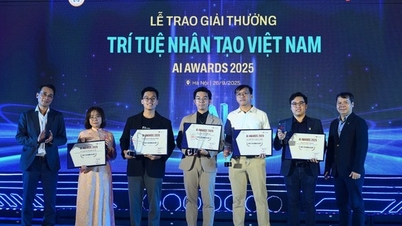






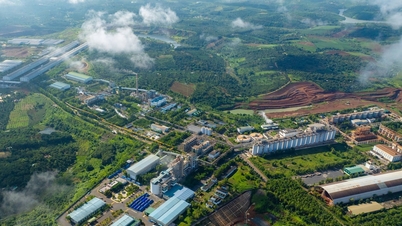



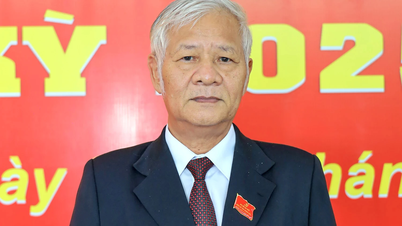

















Comment (0)